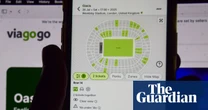Lowe’s, Tractor Supply, John Deere, Harley Davidson, Jack Daniels, Ford, Toyota—each of these brands has recently rolled back their diversity, equity, and inclusion (DEI) efforts.
Since the Supreme Court overturned affirmative action in 2023, companies such as these have abandoned their commitments to DEI. Plus, the anti-DEI movement has begun attacking businesses, leading many to wonder: Has the global DEI movement run cold?
But these backwards-looking brands are outliers. They are not the global trend. The truth is that we are not witnessing a sea change in the marketplace or an erosion in public attitudes. Most businesses understand that DEI is good for workers and good for business.
What we are seeing is the animus of radical, right-wing activists whose aim is to stir controversy and confusion by targeting and shaming certain brands. This cause is not pro-business. It’s not pro-worker. It’s not pro-economic growth. Its sole aim is to polarize society.
While conservative activists and social media influencers make hay off a rancorous culture war to boost clicks and cashflow, many businesses are continuing to invest in DEI. Here’s why.
DEI is good for business
C-suite executives at Fortune 500 companies, including JPMorgan Chase’s Jamie Dimon, Cigna Health’s David Cordani, ConocoPhillips’ Ryan Lance, and MasterCard’s Tim Murphy are among the mass of leaders who are reassuring shareholders that their organizations’ commitment to DEI is solid.
In comments at the Council of Institutional Investors fall conference, Dimon said DEI is “good for business, it’s morally right,” and it “makes financial sense to reach out” to diverse communities, including LGBTQ+ employees and consumers.
Dimon is far from alone in his sentiments.
In its annual survey on corporate social responsibility released in August, the Association of Corporate Citizenship Professionals reported that 83% of respondents said their organization’s commitment to DEI remains consistent, and another 13% said their commitment has increased compared to last year.
Bridge Partners recently polled 400 C-suite and human resource executives for their 2024 Inclusion Barometer and found that a whopping 94% of companies reporting that DEI programs positively impact recruiting and retention, and nearly three-quarters (72%) saying they expect to expand their initiatives in the coming two years.
And in its 2024 report Investor Guide to LGBTQ+ Inclusion Open for Business examined results for nearly 300 of the largest listed companies across four global markets and determined that companies with the top 25 LGBTQ+ transparency scores are 2.3 times more profitable than the bottom 25.
It’s clear that business leaders know that the solid business case for DEI has long been confirmed through data, experience, market performance, shareholder earnings, and case studies. As important, they know that DEI is not partisan, political, nor “woke.” Plain and simple, doing the right thing is the smart thing.
Recruitment, retention, and revenue
In our economy with intense competition for human talent and consumers, companies that bend or break to the anti-business backlash against DEI programs in general—and LGBTQ+ inclusion initiatives in particular—do so at their own peril in the face of a rising market tide. Why’s that?
Public support for DEI programs is strong. A majority of Americans polled this summer by Morning Consult, The Washington Post, and Ipsos said that DEI initiatives are important for business success (63%) and that DEI programs are “a good thing” (60%).
The LGBTQ+ population—and workforce—is growing. Gallup polling released this spring shows that, overall, 7.6% of U.S. adults identify as LGBTQ+, up from 5.6% in 2020. For Gen Z specifically, that number increases exponentially to 28%, according to a 2024 report from the Public Religion Research Institute. And EY has estimated that Gen Z employees will represent 30% of the workforce by 2030.
The LGBTQ+ community also has economic clout. The latest estimates by LGBT Capital peg global LGBTQ+ community purchase power at $4.7 trillion—$1.4 trillion of which is U.S. LGBTQ+ consumers alone.
LGBTQ+ employees aren’t taking DEI rollbacks lying down. According to a recent Human Rights Campaign survey, more than three-quarters (75.7%) of LGBTQ+ adults would view companies that rollback their DEI initiatives dimly. Nearly 20% would quit or start looking for a new job. And one-third (33.6%) feel their productivity would suffer.
What can leaders do?
With recruiting, retention, and revenue hanging in the balance, what advice best serves corporations? When put to the test, what should decision-makers do?
First, lean into your long standing values, and trust your stakeholders to accept them–even if not all agree with you. Your values will always be tested but know that you will be judged most by how you stand by your principles. It’s a marathon, never a sprint, and your recruiting, retention, brand loyalty, and bottom line will tell the truth.
Second, show your faith in your most valuable resource: your people. Listen to them with real care. If you do, your employee resource groups, your seasoned workers, and your future hires will have your back. And you must have theirs. It’s essential to show all employees that your policies never discriminate against anyone for who they are, or who they love.
Third, align, listen, and learn from the nation’s top LGBTQ+ business and professional leaders at organizations like Out & Equal, the Human Rights Campaign, the National LGBTQ Chamber of Commerce, and Out Leadership, who believe–as do the most effective business leaders–that an inspired and truly inclusive workforce is an essential ingredient to business success.
It is a fundamental truth that success in life as well as in business requires showing up authentically, openly, and confidently. That can only happen when individuals feel a true sense of safety and belonging.








No comments